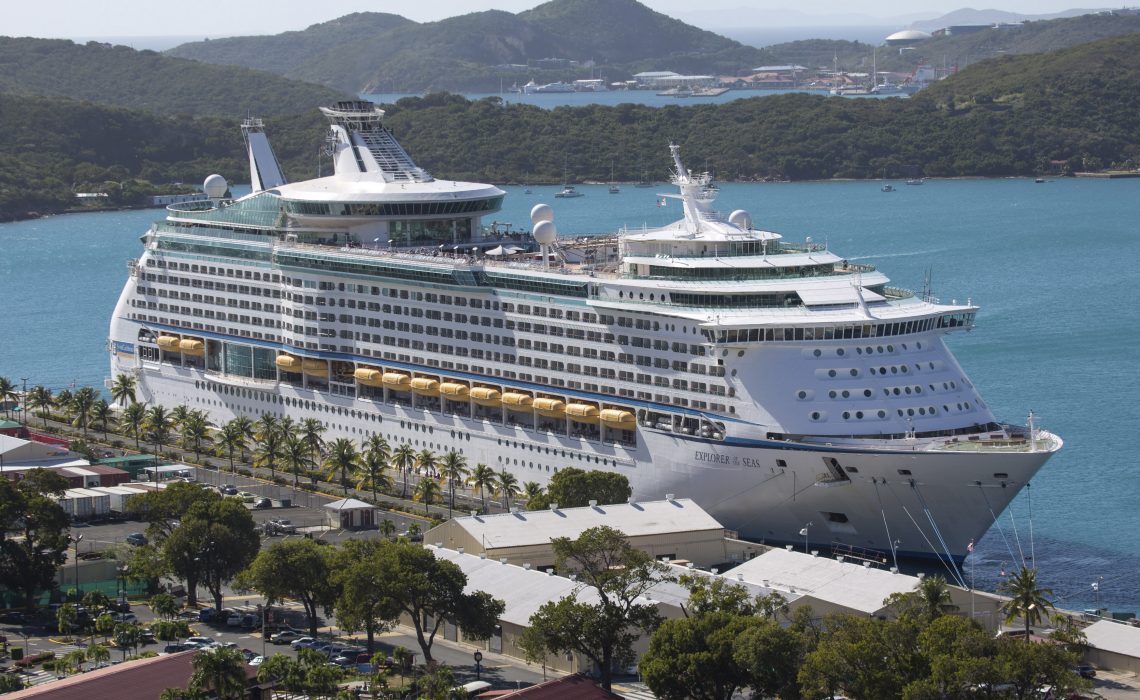
You might also like:
The Royal Caribbean International’s Explorer of the Seas is shown in St. Thomas, U. S. Virgin Islands. The Zika virus has spread throughout the Caribbean, including the U.S. Virgin Islands. Thomas Layer / Associated Press
Travelers aren’t letting the threat of a mosquito-borne illness scare them away from tropical cruises.
The Zika virus has been making headlines for the last few months as it spread through the Caribbean and Latin America. But despite the attention, several cruise line executives said during the Seatrade Cruise Global conference this week that the impact on their business has been negligible.
“I think most of us hardly saw even a blip from cancellations,” said Rick Sasso, president and CEO of MSC Cruises USA. “We really didn’t see an impact that was something even measurable.”
He and others sounded more concerned about future press coverage of the illness.
“As long as the media doesn’t overreact, we’ve managed to deal with that without much impact,” said Jorge Vilches, president and CEO of Pullmantur. The Spanish brand is part of Royal Caribbean Cruises.
Since mid-2015, Zika has been spreading through Caribbean islands, Mexico, Central America, and South America. According to the Cruise Lines International Association, nearly 34 percent of global capacity is deployed in the Caribbean this year and nearly 3 percent is in South America.
Working in the cruise lines favor is the likelihood that most people who are infected with Zika won’t even know it. The CDC says fever, rash, joint pain, and red eyes are the most common symptoms.
But what has drawn most of the focus is the concern that Zika could be linked to birth defects and brain damage in babies. The World Health Organization declared a public health emergency over the Zika virus and the Centers for Disease Control and Prevention warned pregnant women against traveling to areas where the illness is present earlier this year.
Mark Conroy, managing director of the Americas for Silversea Cruises, acknowledged at least one concerned customer who wanted to cancel her cruise in the Caribbean.
“I said ‘Why?’ and I looked at her record,” he said this week. “She was 82 years old. I reminded her it had a lot to do with people of reproductive age and she didn’t appreciate that comment at all.”
The industry is no stranger to external forces that have the potential to disrupt vacation plans.
As Carnival Corp. president and CEO Arnold Donald said: “Every year those things happen.” He cited fluctuating currencies, Ebola, and Middle East respiratory syndrome as a few examples other than Zika.
“As long as it happens every year the way it’s been happening, we’re fine,” he said. “We grew in all those years. As long as people don’t totally panic as a globe, we’re fine.”
The comments this week echo those made by executives last month during calls with analysts.
Michael Bayley, president and CEO of Royal Caribbean International, said in early February the line had “really seen no impact whatsoever.”
“It’s been really immaterial,” he said. “I mean, obviously it’s all over the media and we see it. But to date, we haven’t had any material impact.”
Late last month, Norwegian Cruise Line Holdings president and CEO was likewise dismissive.
“Simply put, the impact of Zika virus has been negligible across our brands,” he said. “And we believe based on past experience from similar outbreaks that any remaining concerns will soon subside.”
Source: skift.com
